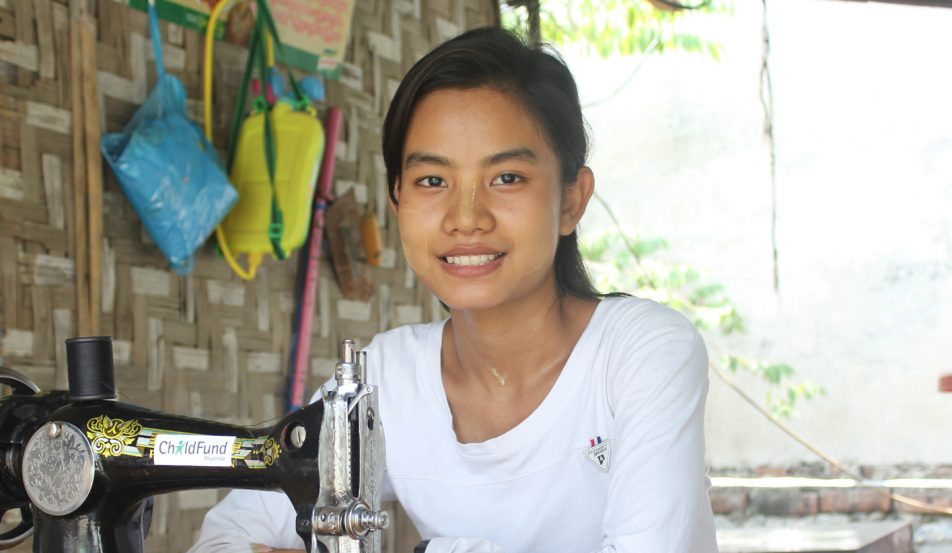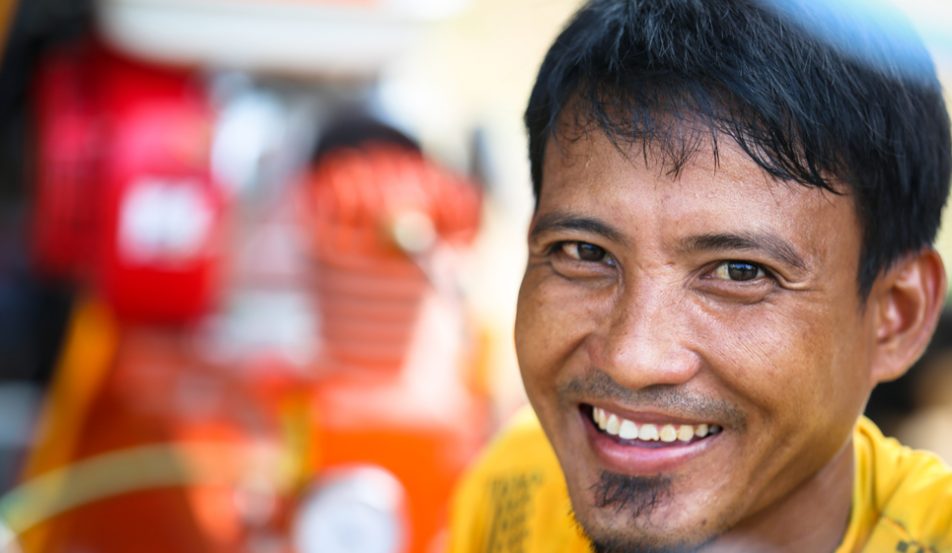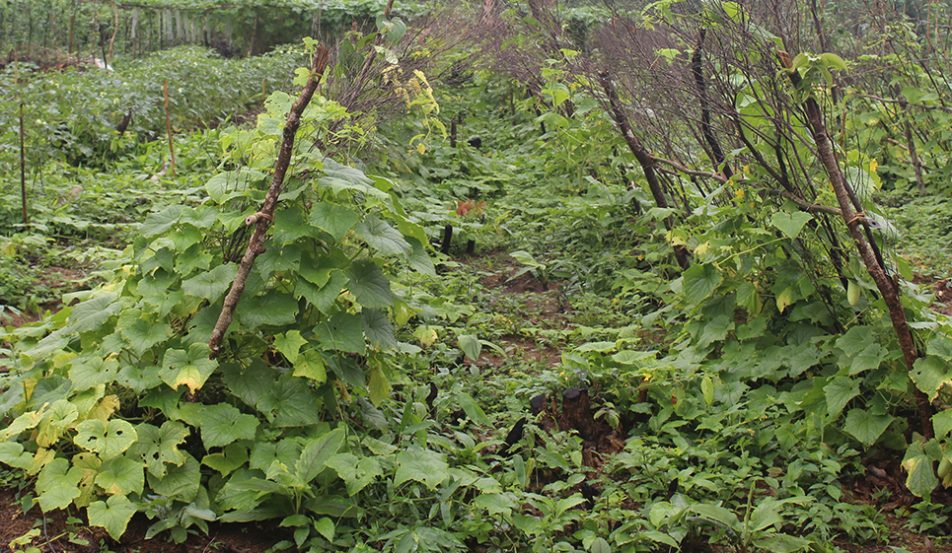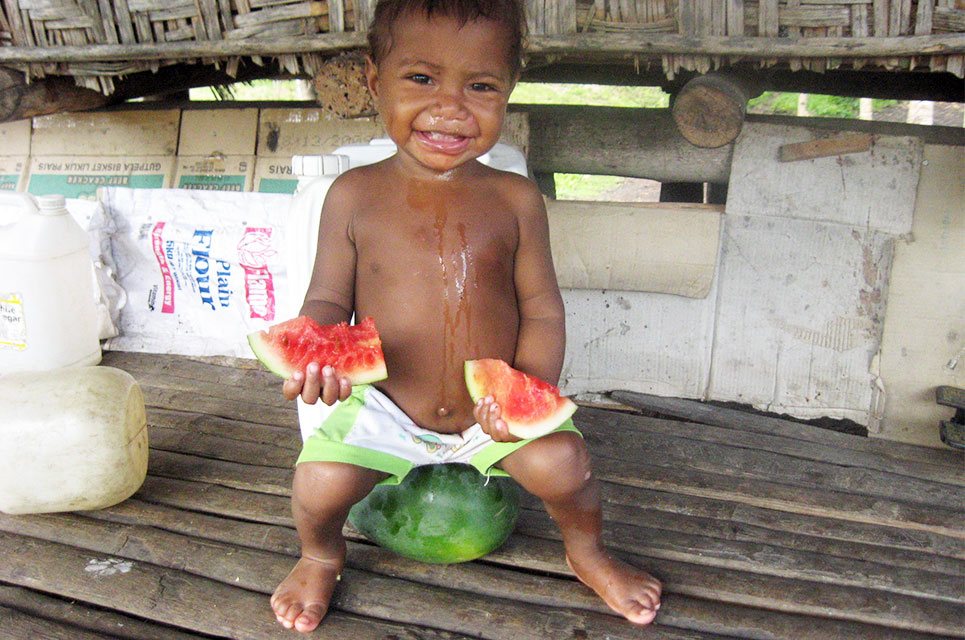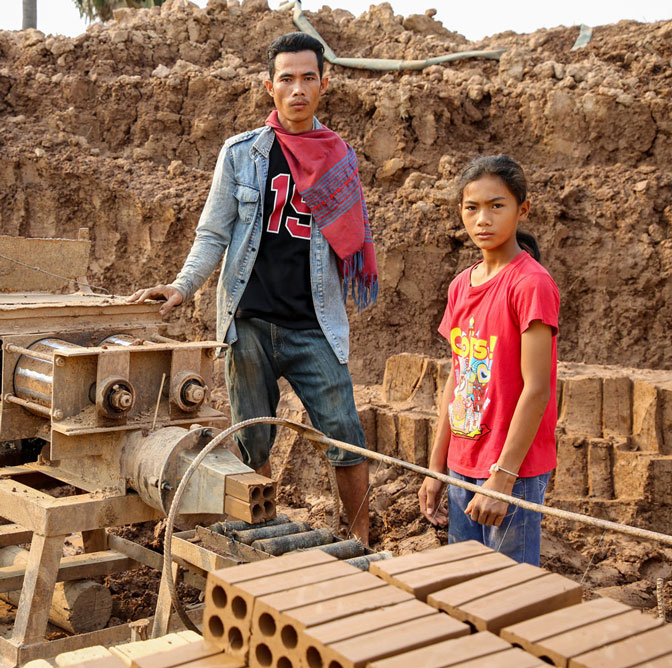Kore was one of the twelve communities in Rigo District to implement this project, which looked at how rural farmers might benefit from a range of agricultural interventions, with a focus on drought resistant crops. Around 130 farmers were trained on financial literacy and improved farming practices, including nursery management, soil and water management, crop protection, post-harvest management and marketing. This project is supported by the Australian Government.
Vavine sells his watermelon produce in 50kg bags. A few months ago, he sold fifteen bags, making a 100% profit on his original investment. Demand for watermelons is still outweighing supply, yet only a small group of farmers have tapped into this market.
“Watermelon has helped me and my community build permanent houses, purchase trucks, buy tractors to plough the land, pay school fees and food,” says Vavine. “As long as the demand is there, I will continue to plant watermelon with other vegetables for my family and to sell.”



